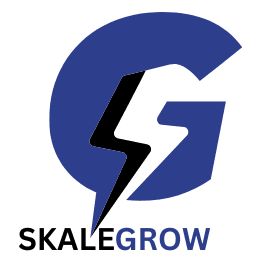This article was originally published in the Elevate Your Marketing newsletter and has been repurposed and republished here with the author’s permission. Here is the link to the original article.
Artificial intelligence has taken its place in almost all domains of marketing. And marketing is incomplete if we don’t talk SEO. So in this article, we dive deep into the different ways in which AI is making the lives of SEO professionals and content marketers easier.
A few words before we start
The biggest challenge I had while putting this piece together was: how to divide the content into different subsections in the most logical way. This is because most of the AI-based SEO tools available in the market today offer a suite of SEO solutions or modules that are not limited to a particular area within SEO. So do keep the following in mind as you read through:
- The features offered by the tools mentioned under a particular section need not be the only features available in the full platform.
- Mentioning a tool in a particular section doesn’t mean that it is best suited for that function. If you are considering to onboard an AI-based SEO tool, I recommend you do a thorough evaluation of the tools to see if they fit your needs.
That said, let us dive right in. Shall we?
How AI aids in improving SEO effectiveness
The number of things artificial intelligence can achieve in SEO is endless. However, broadly speaking, the following are the areas where AI makes a difference in enhancing the outcomes of your SEO efforts:
- Delivering search engine results
- Discovering keyword and ranking opportunities
- SEO scaling and automation
- SEO content ideation, generation, and optimization
- Optimizing for voice search
- Enhancing user experience
Let us look at each of these in detail now.
Also read: Getting Started With SEO-led Content In 3 Days
1. Delivering search engine results
No SEO article is complete without mentioning search results. You probably know that Google (or any other search engine) delivering the most relevant search results has a sophisticated AI working behind it.
A search engine has to consider hundreds of parameters while ranking various pages in SERP (Search Engine Results Pages). And this cannot be possibly done using a simple rule-based algorithm. From Hummingbird to Rankbrain to BERT and MUM, all the Google algorithms leverage complex AI and machine learning to make sure searchers get the best experience.
2. Discovering keyword and ranking opportunities
One of the key SEO activities is finding the right keywords and ranking opportunities for your website. And this is typically time-consuming even if you have an SEO tool at your disposal. AI can do this at scale for you. By analyzing hundreds of content pieces around your niche, AI-based tools can serve you a personalized set of keywords depending on your industry and website authority.
For instance, BrightEdge helps you quickly find keyword opportunities based on what your website is already ranking for. Have a look at the below video that walks through how you can do this using the platform.
Now, are wondering: can’t this be done by carrying out a content gap analysis using a tool like Ahrefs or Ubersuggest?
Well, yes. However, the limitation is that they only compare the 2-3 websites you input as competition to arrive at the keyword list, whereas an AI-based tool analyzes many.
3. SEO automation and scaling
This has an overlap with some of the other sections of this article. When we say automation, a wide variety of activities in SEO can be automated using AI. Even the AI-assisted keyword research task we discussed in the previous section is a type of SEO automation.
However, here we look at more = activities such as carrying out a technical SEO audit, automated schema markup, competitor analysis, etc.
For instance, the tool WordLift can help automate the process of schema creation, Though configuring schema has become much easier with GTM (Google Tag Manager), AI-based tools take this to the next level by automatically suggesting ways in which you can add schema to a page, and help to do that quickly with the click of a button.
To understand this better, please have a look at the below video that shows how this is done in WordLift.
Running automated technical SEO audits and optimizing the website accordingly is another use case of SEO automation. A tool that can do this is Alli AI. Watch the below video to get a quick overview of the tool
4. SEO content ideation, generation, and optimization
AI-based SEO content creation and optimization have a lot in it. Following are the three key things AI-based SEO and content generation tools help to do:
- Find topic and content ideas
- Automatically generate SEO-relevant short-form as well as long-form content
- Optimize content for SEO relevance and better ranking
You can use a tool like Copy AI to generate content ideas, create a content outline, and write an entire article. Copy AI can also help you create blog titles, meta descriptions, H tags, etc., that are SEO-relevant.
There are also tools that specialize in long-form content writing such as Jasper and LongShot AI.
Do check out the below video to understand how LongShot AI does its magic:
AI-based SEO content tools also offer other features such as keyword-based paragraph generation, creating outlines, answering questions, creating pillar page topics and associated topic clusters, and more.
5. Optimizing for voice search
Roughly half of all internet users in the US used voice search in 2020 (eMarketer 2020). And with Siri, Alexa, and Google Assistant becoming more and more popular, the affinity for voice search is only going to increase.
This requires you to optimize your website for voice – this technique is called Voice SEO or VSEO.
Now, how does AI play a part in this?
Since a lot of the voice searches are question-based, optimizing your content to respond to questions is one of the best ways to implement VSEO. And AI tools help you find relevant questions related to your topic that searchers ask. They can also help create responses in a listicle format which increases the probability of being listed as a featured snippet in Google SERP, which in turn will enhance voice search rankings.
For instance, Frase is an AI-based tool that will help you identify the questions searchers ask related to your niche or topic. This way, you will be able to incorporate answers to these questions in your content. This will help significantly boost voice search rankings.
Related: How AI can ‘give voice’ to your brand through Brand Language Optimization
6. Enhancing user experience
The term user experience is very generic. However, when it comes to SEO, we refer to user experience as the ease with which a user can land on your website and navigate it. The factors that contribute to a good website experience include faster loading, easy navigation, mobile-friendliness, good readability, etc.
And with search engines becoming smarter, delivering the best user experience has become all the more important. However, knowing exactly what changes to make and how they impact user experience requires time-consuming and tedious analyses. And this is at times a black box as well – given that it is difficult to find and consolidate this info.
This is where AI can help. An AI tool like MarketBrew can simulate a search engine’s behavior and give recommendations on what changes to make on your website to positively impact user experience.
Please check out the below video to learn how the platform does it:
With a tool like this, you do not have to worry about constant search engine algorithm updates either.
The future of AI in search engine optimization
Since search engine algorithms change fast, it’s sometimes difficult to keep up with all the updates. Using an AI tool can be one of the ways to overcome this. While there are AI SEO tools that specialize in specific tasks, they face stiff competition from popular SEO tools in the market like Ahrefs and SEMRush. They also pose the threat of integrating AI into their platforms. So the future is likely to see two trends:
- Specialized AI SEO tools adding more functionalities in an attempt to make them an ‘all in one’ SEO platform.
- Popular SEO tools like Ahrefs integrating AI features.
This would create a more competitive environment which will offer SEO professionals better tools, features, and more choices to pick from.
About the author

Naseef KPO is the Founder and CEO of Skalegrow. He comes with rich experience across multiple areas of B2B marketing including content marketing, demand generation, SEO, account-based marketing, marketing analytics, revenue attribution, marketing technology, etc. He writes thought-provoking and relevant articles on The Skalegrow Blog and his weekly LinkedIn newsletter Elevate Your Marketing.
Prior to starting Skalegrow, Naseef led large marketing teams in multi-million dollar B2B organizations where he made significant contributions to the topline growth of the business. He has also appeared on numerous podcasts where he shared his thoughts on trending marketing topics such as the application of AI in marketing, startup marketing, ABM, and B2B content marketing, just to name a few. Being the founder of Skalegrow, he is currently focusing on helping its clients stay ahead of their competition by using innovative yet practical marketing tactics.
You can connect with Naseef KPO on LinkedIn.


